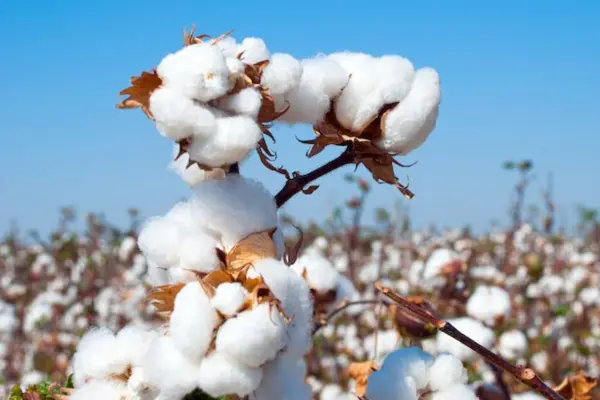Organic cotton has gained significant attention in recent years due to its environmental and health benefits. Unlike conventional cotton, which is grown using synthetic chemicals and pesticides, organic cotton is cultivated through sustainable farming practices. Let’s delve deeper into what organic cotton is and why it’s becoming increasingly popular.
Table of Contents
What is Cotton Organic?
Cotton that is grown organically without the use of any fertilizer or pesticides is called organic cotton. It is also known as bio-cotton.

What Makes Cotton Organic?
Farming Practices:
Organic cotton is grown using methods that have a minimal impact on the environment. Farmers avoid the use of synthetic fertilizers, pesticides, and genetically modified organisms (GMOs). Instead, they rely on natural alternatives like compost and crop rotation to maintain soil fertility and control pests.
Certifications:
To ensure authenticity, organic cotton farms must adhere to strict certification standards. Organizations such as the Global Organic Textile Standard (GOTS) monitor the entire supply chain, from cultivation to processing, to ensure compliance with organic principles.
Advantages:
- Protecting surface and groundwater quality.
- Reduced risk of insect attacks.
- Anti-Allergenic.
- Moisture absorbency is higher than any cotton.
Disadvantages:
- Farming and production are inexpensive.
- Avoid cotton with added chemicals.

Difference between Organic Cotton and Conventional Cotton
| Aspect | Organic Cotton | Conventional Cotton |
|---|---|---|
| Farming Practices | Cultivated using sustainable methods without synthetic chemicals | Relies on synthetic pesticides, fertilizers, and GMO seeds |
| Certifications | Certified by organizations like GOTS for adherence to standards | Often lacks certifications for environmental and social impact |
| Environmental Impact | Promotes soil health, biodiversity, and water conservation | Can lead to soil degradation, water pollution, and habitat loss |
| Health Benefits | Free from chemical residues, safer for skin and respiratory health | Exposure to pesticides and chemicals can pose health risks |
| Cost | May have slightly higher upfront cost due to production methods | Lower initial cost, but hidden environmental and health costs |
| Yield | Generally lower yield compared to conventional cotton farming | Higher yield due to intensive use of synthetic inputs |
| Impact on Soil | Helps maintain soil fertility and structure | Can deplete soil nutrients and lead to erosion and degradation |
| Water Usage | Requires less water due to efficient irrigation methods | Often involves excessive water usage and irrigation |
| Global Market Share | Growing market share as demand for sustainable textiles rises | Dominates the global cotton market with large-scale production |
Certifications and Standards
GOTS (Global Organic Textile Standard):
GOTS is a leading certification for organic textiles, ensuring that products meet strict environmental and social criteria. It covers every stage of production, from harvesting raw materials to labeling and packaging.
Other Certifications:
In addition to GOTS, there are other certifications such as OEKO-TEX Standard 100 and Fair Trade that promote ethical and sustainable practices in the textile industry.

Mahedi Hasan working as an Executive (Fabric Marketing) at Pengnuo Group. Graduated with B.Sc. in Textile Engineering. Before was a Top Rated content writer at Upwork, and Level 02 Seller at Fiverr, Level 02 Publisher at Ezoic. Very passionate about content writing, SEO practice, and fashion website designing. Highly Experienced fashion writer for the last 4+ years. Have extensive 7 years of experience in the wholesale clothing business.
